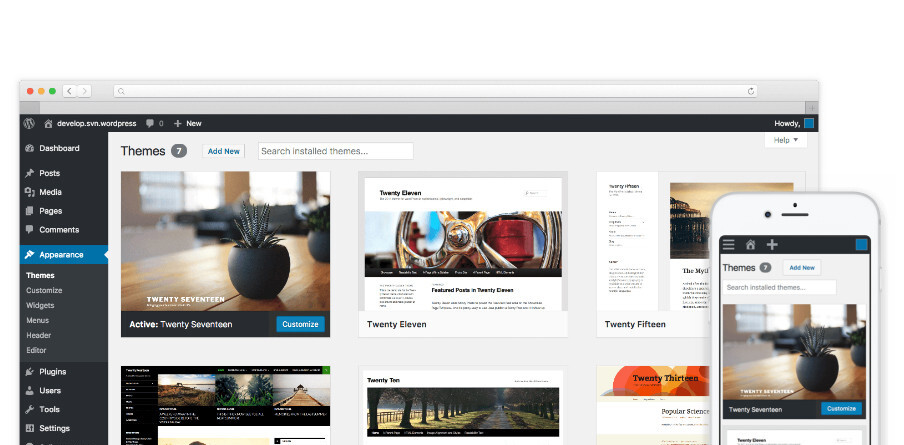
WordPress powers about 14% of the web today and still growing. What sets it apart from other content management systems is that it ‘just works’ and is super-easy to use.
But how do you balance between simplicity and functionality? If you try to pack everything into the CMS, you get a bloated monster that can’t carry its own weight. If you stick to just basic features, you get great performance and simplicity but with limiting functionality.
The answer is plugins. With plugins, WordPress turned extendability into an art. Whatever is left out of the core system can go into a plugin. In fact, most of today’s core functionality started as independent plugins. Over time, as these features became popular, they got merged into the core.
But, where are these plugins coming from? Who’s writing them and for what reason?
Thousands of Free WordPress Plugins
Most WordPress plugins are available from the plugins repository on wordpress.org. There are over 14,000 registered plugins there, offering anything from Tweet buttons, to enhanced galleries, search optimization, e-commerce and most anything else you can imagine.
Free WordPress plugins are free in every respect. Like Free Beer, they don’t cost money and like freedom of speech, you can do anything with them, including selling them.
People write and maintain free WordPress plugins for many reasons. Some even do it for fun. It’s exciting to know that your work powers tens of thousands of sites.
Others do it for lead generation. Having your name on a popular WordPress plugin helps establish the authors as experts in their fields. SEO plugins are a great example for this.
And finally, there are those who write a piece of code that they need and then release it as a plugin, so that others can use it and improve it. This is the original intent of open-source software.
Paid Plugins
On the other side of the fence reside the paid, or commercial, plugins. Most of these plugins come with a GPL license too, so users are still free to use them as they see fit. The difference is, to download them and obtain support from the author, you need to pay.
Just because a plugin costs money doesn’t automatically mean that it’s any better than free alternatives. But it does bring responsibility to the table.
When you pay for something, you earn some rights, and if your rights are neglected you can always get your money back.
Like with other purchases, clients shouldn’t just consider the product. They should see what kind of support they will receive, the upgrades policy and any limitations that may exist. It’s no different than anything else we buy in the ‘real world’ and the same rules apply for software, even when it’s open-source.
There’s Always a Cost
How much are these things worth to you?
- 8 hours to configure and troubleshoot
- 1 day of site down-time
- Server going over-capacity
Many plugins are complex and take time to setup and use. For instance, the W3TC plugin that we use requires careful understanding in order to run correctly. It took an expert developer a full day to configure it fully. But in the end we saved 95% of the server’s resources, so it’s a great investment.
If we needed to experiment with five other different free plugins, our real cost would be thousands of dollars, not zero.
This is the kind of plugin I wish I could pay for. I’d love to save some time drilling the code and searching in forums. Instead, I’d like to pay the author, so that they can write complete documentation and answer support questions. If there was a paid version for W3TC, I’d be the first to buy it and I’m pretty sure I wouldn’t be alone.
What Plugin to Choose
Choosing a CMS for your website is like a marriage. You need to be happy when you get started, but it’s more important to make sure you’ll still be happy in years to come.
Major plugins, that contribute critical functionality are pretty much the same. You need to choose something that you’ll like in the future too. Something that stays with you when WordPress upgrades and that provides dependable support.
Many free plugins have a vibrant community of users and developers. They are usually also backed by commercials WordPress shops who don’t want to have their names associated with broken sites and failed functionality.
Other plugins are developed by students in their spare time. They’re great and perform very well. Users just need to realize that the author may have time now, but not in the future. It’s fine, as long as there’s a ‘plan B’.
Commercials plugins can be a good thing or a bad thing. When you consider a paid plugin for your site, take some time to check how responsive the author is towards other clients, how frequently the plugin is updated and what others are saying. This will help you understand the level of commitment and the long-term stability of the product.
My Favorites
We run several WordPress sites. There’s nothing representative about any site and everyone needs something else. Nonetheless, these are the plugins that rock our world:
- W3TC – a full performance caching package (free)
- WP Super Cache -a lighter and simpler caching plugin for WordPress (free)
- CMS Page Tree View – helps administer sites with many pages (free)
- Relevanssi – turns WordPress searches into something actually useful (free)
- Gravity Forms – help build flexible contact forms (paid)
We use other plugins too, but these seem to show up in the plugins of almost any site that we run.
Get the TNW newsletter
Get the most important tech news in your inbox each week.




